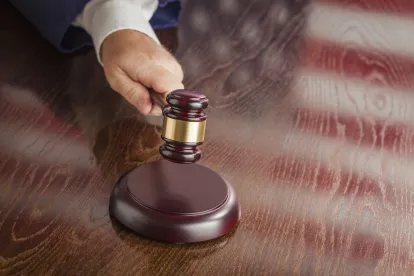The Court of Appeals for the Federal Circuit ruled in February that the Patent Trial and Appeal Board (PTAB) cannot cancel claims for indefiniteness in an inter partes review (IPR) proceeding. The case is Samsung Electronics America, Inc., v. Prisua Engineering Corp., case number 19-1169, in the U.S. Court of Appeals for the Federal Circuit.
Under 35 U.S.C. § 311(b), a petitioner may request to cancel, as unpatentable, claim(s) of a patent only as anticipated under 35 U.S.C. § 102 or obvious under 35 U.S.C. § 103, and only on the basis of prior art consisting of patents or printed publications. Section 311(b) does not include indefiniteness under 35 U.S.C. § 112(b) as a grounds for invalidity. However, in order to consider grounds under sections 102 or 103, the PTAB must first construe the claims. Construing the claims necessarily requires the PTAB to determine whether the claims are indefinite because claims that cannot be construed are indefinite. Still, in Samsung v. Prisua, the Federal Circuit confirmed that during an IPR the PTAB may not cancel claims for indefiniteness even where it finds a claim term indefinite. Instead, rather than canceling the indefinite claim, PTAB should conclude that it could not reach a decision on the merits. Specifically, the Federal Circuit stated:
Congress viewed a challenge based on indefiniteness to be distinct from a challenge based on sections 102 and 103. As such, the proper course for the Board to follow, if it cannot ascertain the scope of a claim with reasonable certainty for purposes of assessing patentability, is to decline to institute the IPR, or if the indefiniteness issue affects only certain claims, to conclude that it could not reach a decision on the merits with respect to whether petitioner had established the unpatentability of those claims under section 102 or 103.
The Federal Circuit further explained that notwithstanding claim indefiniteness, if the PTAB can apply the art under a section 102 or 103 ground, they should do so. Such a situation may arise where a claim can be construed but is still indefinite, such as under the Federal Circuit holding in IPXL Holdings v. Amazon, in which a claim was found indefinite for attempting to claim both a system and a method.
This decision may require petitioners to consider carefully whether to challenge a patent they think may be indefinite because the claims cannot be construed. For instance, in some cases, a PTAB ruling will find claims to be indefinite but it cannot cancel them for that reason, leaving the petitioner to raise the issue in district court. But in district court patent claims are presumed to be valid, and a district court is under no obligation to follow the PTAB and invalidate the patent as indefinite.
The decision also creates the risk that by filing a petition, petitioners will be seen to have conceded that the claims are definite, since arguing that the claims are unpatentable under sections 102 and 103 requires them to first construe the claims.
Lastly, the decision also could make it difficult to challenge means-plus-function claims because such claims are indefinite if they do not include a corresponding structure that performs the function. In some cases, identifying the structure can be difficult, and failure to clearly do so in a petition may cause the PTAB to deny the petition.





 />i
/>i


